Department Of Medicine
-

Probing the genetics of autoimmunity
Vanderbilt researchers have found that non-coding regions of the genome appear to contribute to the risk of autoimmune diseases and may represent attractive therapeutic targets. Read MoreJul 21, 2017
-

NOTCH1 role in heart development
The identification of a genetic culprit for hypoplastic left heart syndrome could lead to new treatments for the condition. Read MoreJul 3, 2017
-

VU scientists report a way to calm the sepsis “storm”
Researchers at Vanderbilt University Medical Center (VUMC) have found a way to calm the “genomic storm” that triggers the often-lethal consequences of sepsis. Read MoreJun 22, 2017
-

Schaffner receives UpShot Award in vaccine communication
The National Vaccine Program Office in the U.S. Department of Health and Human Services has selected William Schaffner, M.D., to receive its 2017 NVPO UpShot Award in Vaccine Communication. Read MoreJun 15, 2017
-
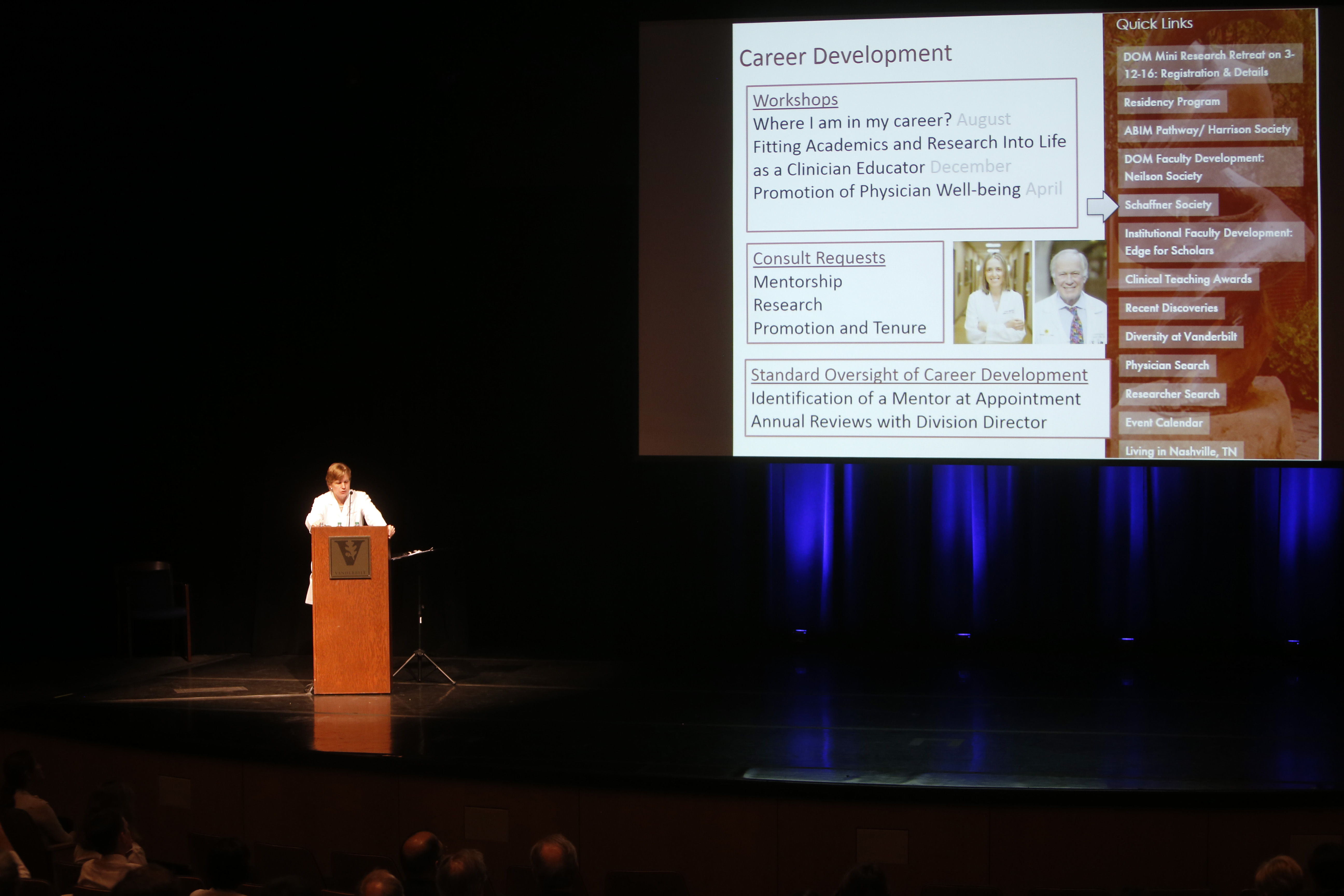
Chair of Medicine shares good news – and a story
Nancy J. Brown, M.D., chair and physician-in-chief of the Department of Medicine in the Vanderbilt University School of Medicine, shared a bumper crop of good news in her annual State of the Department address last week. Read MoreJun 15, 2017
-

Coffey lands major NCI award to support colorectal cancer research
Vanderbilt’s Robert Coffey Jr., M.D., has received an Outstanding Investigator Award from the National Cancer Institute (NCI) — more than $6.6 million over seven years — to support studies aimed at advancing the diagnosis and treatment of colorectal cancer (CRC), a leading cancer killer. Read MoreJun 8, 2017
-

New screening model quickly spots acute kidney injury
Researchers at Vanderbilt University Medical Center (VUMC) have developed a screening tool intended to more quickly identify patients with acute kidney injury (AKI). Read MoreJun 8, 2017
-

New diabetes technology clinic informs patients about innovations
Shichun Bao, M.D., Ph.D., associate professor of Medicine, unclips an insulin pump smaller than a deck of cards from her waistband to glance at its digital readout — but she doesn’t actually have diabetes and the pump contains only saline. Read MoreMay 25, 2017
-
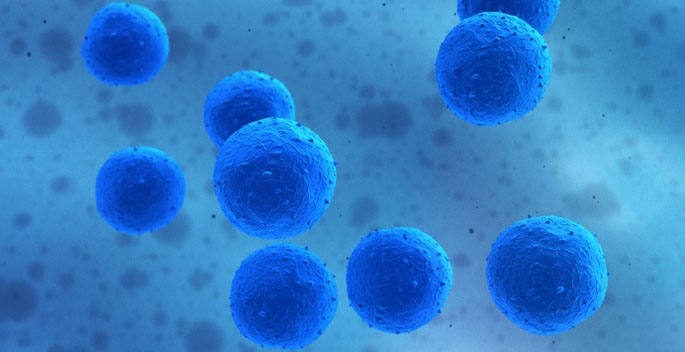
Study reveals role for stem cells in chronic lung diseases
A novel population of lung stem cells plays an important role in regulating the pulmonary microvasculature — the network of tiny blood vessels where oxygen and carbon dioxide exchange takes place. Read MoreMay 25, 2017
-

Blood type link to cancer survival
Blood type A was associated with longer ovarian cancer survival in a recent Vanderbilt-led study. Read MoreMay 17, 2017
-
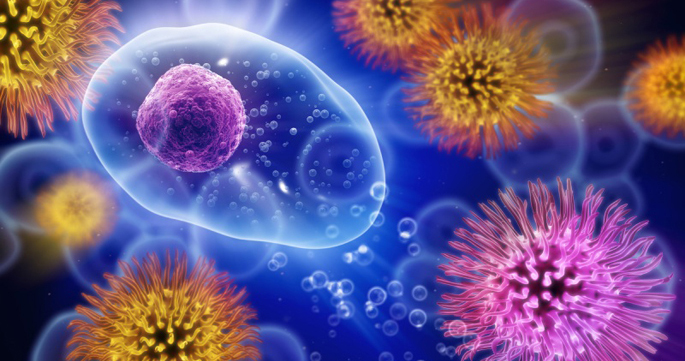
RSV-HRV viral interference
RSV infection reduces the risk of infection with human rhinovirus, which could have implications for vaccine development and prevention strategies for viral respiratory tract infections in infants. Read MoreMay 15, 2017
-

EETs contribute to insulin sensitivity
Interventions that increase circulating levels of compounds called EETs may improve insulin sensitivity and treat hypertension. Read MoreMay 11, 2017
-

Scientists create unique disease ‘catalog’ linked to immune system gene variations
A study led by researchers at Vanderbilt University Medical Center (VUMC) and the University of Arizona College of Pharmacy has generated the first comprehensive catalog of diseases in a single population associated with variations in HLA genes that regulate the body's immune system. Read MoreMay 10, 2017
-
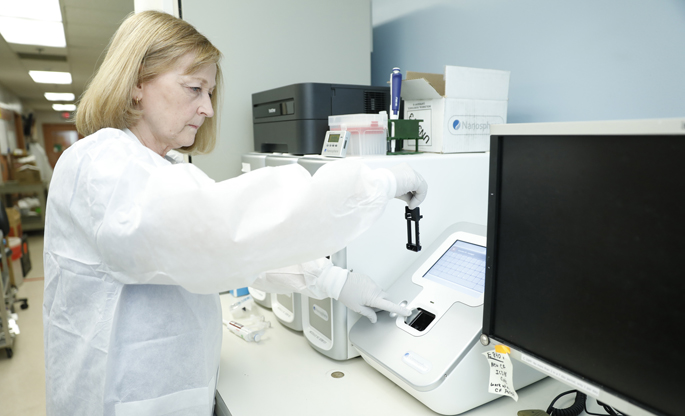
New test rapidly identifies cause of blood infections
Last month, Vanderbilt Clinical Laboratories introduced rapid molecular diagnostic testing to more quickly identify microorganisms that may be causing a patient’s bloodstream infection, along with the organism’s susceptibility to drugs. Read MoreMay 4, 2017
-

Lovly elected to American Society for Clinical Investigation
Christine Lovly, M.D., Ph.D., assistant professor of Medicine and Cancer Biology at Vanderbilt, has been elected to The American Society for Clinical Investigation (ASCI). Read MoreMay 4, 2017
-

Therapeutic targets for diabetes
Vanderbilt investigators have identified novel regulators of insulin-producing beta-cell proliferation and survival, suggesting new targets for the treatment of type 2 diabetes. Read MoreMay 3, 2017
-
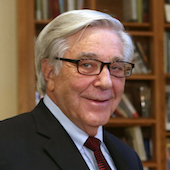
Hudson to receive Protein Society’s Brändén Award
Vanderbilt University biochemist Billy Hudson, Ph.D., has been awarded the 2017 Carl Brändén Award by The Protein Society for exceptional contributions to science, education and service. Read MoreApr 27, 2017
-

Protein structure may aid in treating Alzheimer’s disease
A new protein structure may guide the development of Alzheimer's therapeutics. Read MoreApr 27, 2017
-

Vanderbilt’s Christine Lovly elected to American Society for Clinical Investigation
Christine Lovly, Christine Lovly, M.D., Ph.D., assistant professor of Medicine and Cancer Biology at Vanderbilt University Medical Center (VUMC), has been elected to The American Society for Clinical Investigation (ASCI). The ASCI is an elite honor society of physician-scientists. The Society, founded in 1908,… Read MoreApr 24, 2017
-

Study examines new breast cancer drug combination
A study led by Vanderbilt-Ingram Cancer Center (VICC) investigators suggests a drug combination which includes a PDK1 protein blocker may be more effective for breast cancer that has become resistant to cyclin-dependent kinase (CDK4/6) targeted therapy. Read MoreApr 20, 2017